Sr. Elizabeth Davis RSM believes the 2021-2024 Synod on Synodality is as historically significant as Vatican Council II was in the 1960’s. Davis was one of 54 women voting delegates to the October 2023 Synod session in Rome. She shared her Synod experience on a January 17th Zoom with people from across Canada.1
Davis described her experience at the Synod, and highlighted aspects of the 41 page “A Synodal Church in Mission Synthesis Report” generated at the close of the 2023 session. She encouraged Zoom participants to take action in this “kairos moment”2.
She believes if we do not act courageously now, in response to Pope Francis’ invitation, we will have lost an historical opportunity that may evade us for generations.
The Catholic Church today is widely seen as a hierarchical, authoritarian, and exclusionary system. Those large systemic patterns can obscure the communal, dialogical, mystical dynamic of church, for which humans long.
As I have grown in Synodal awareness, I have often recalled a Paulo Freire quote:
“Leaders who do not act dialogically, but insist on imposing their decisions, do not organize the people – they manipulate them. They do not liberate, nor are they liberated: they oppress.” 3
A Synodal church is a listening-to-and-walking-with-church: a dialogical and liberating community of co-equal disciples.
Ways of Participating:
1. Read

Here are some helpful documents. Find your call to action, and find others with whom to reflect and act.
1. A Synodal Church in Mission
The forty-one page Synthesis report from the October 2023 meeting names 20 themes that were discussed and makes proposals which are to be carried forward:
Read the document:
https://www.synod.va/en/news/a-synodal-church-in-mission.html
2. Next Step Actions Worksheet
A “Possible Worksheet”, also put out at the end of the October 2023 session, provides some questions to guide possible “next step” actions.
Read the worksheet:
https://www.synod.va/content/dam/synod/towards2024/theworksheet/ENG-Worksheet.pdf
“Towards October 2024” is a four-page reflection paper that poses a guiding question to deepen reflection:
“HOW can we be a synodal Church in mission?”
Read the reflection paper:
http://tinyurl.com/2tnmuj58
2. Learn

Learn and practice methods of “Spiritual Conversations”/“Contemplative Conversations”.
These “tools” provide a method of speaking and listening that opens possibilities for new solutions to persistent and vexing differences of opinion and practice:
An article from the Vatican website that describes how the Synod delegates practiced “Spiritual Conversation”: http://tinyurl.com/3nzkcswu
2. Spiritual Conversation Convener Guide
A “Spiritual Conversation Convener Guide” from the Jesuits: http://tinyurl.com/4aj63nur
An outline and guide from the Canadian Religious Conference (CRC) that was used in cross-Canada Zoom meetings during Covid: http://tinyurl.com/52utm9fr
4. Contemplative Conversations
A similar method, called “Contemplative Conversations”, is offered by the Leadership Conference of Women Religious (LCWR). The site provide transcripts, and a video of several women having a “contemplative conversation” as an example of the practice.
For me, this demonstration disclosed the potential of listening differently, to have more transformative conversations: http://tinyurl.com/mu22ztcb
The Synod calls all who are baptized to be involved in creating a renewed and renewing church. To respond to such a call is our challenge and our privilege.
Adsumus Sancte Spiritus4
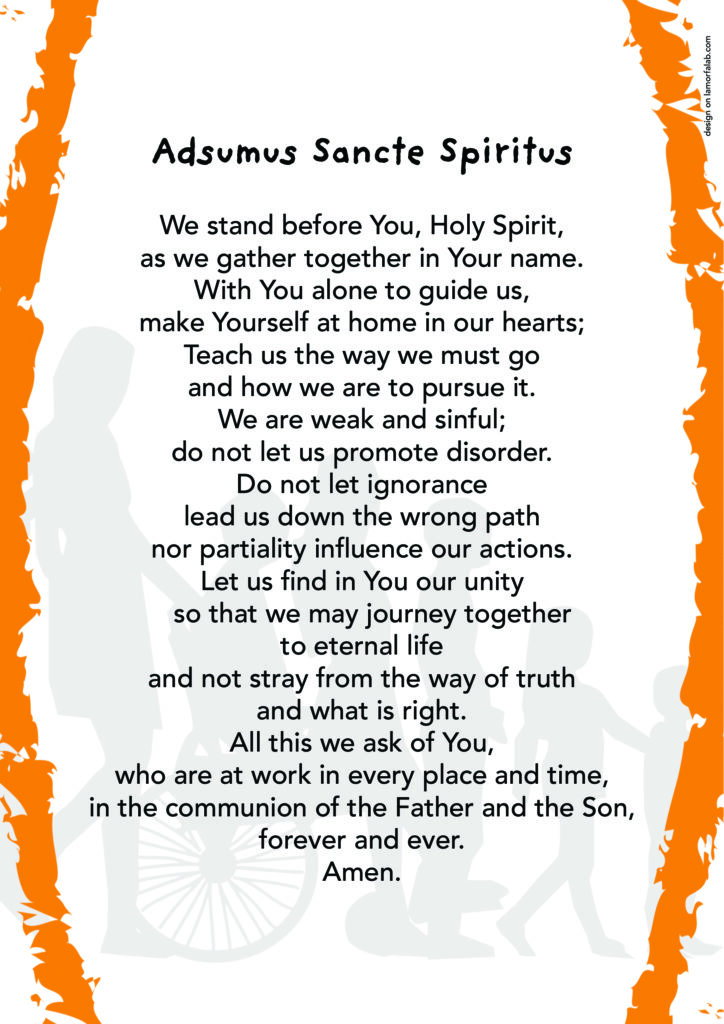
1 Recording of Sr. Davis talk is available at: https://rndmcanada.org/elizabeth-david-synod-discussion/
2 Kairos: a Greek word indicating an opportune time; a time when “conditions are right for the accomplishment of a crucial action”. (“Kairos.” Merriam-Webster.com Dictionary, Merriam-Webster, https://www.merriam-webster.com/dictionary/kairos. Accessed 4 Feb. 2024.
3 Paulo Freire. Pedagogy of the Oppressed (New York: Herder and Herder, 1972) 179.
4 Every session of the Second Vatican Council began with the prayer Adsumus Sancte Spiritus, the first word of the Latin original meaning, “We stand before You, Holy Spirit,” which has been historically used at Councils, Synods and other Church gatherings for hundreds of years. See: https://www.synod.va/en/resources/the-adsumus-prayer.html
Veronica Dunne is a Sister of our Lady of the Missions (RNDM), who has primarily worked as an educator and counsellor in institutional and community based settings in Canada. She has also served with the RNDMs outside of Canada in Senegal, Peru, and Aotearoa New Zealand.
A 2002 Doctor of Ministry graduate from the University of St. Michael’s College, Toronto School of Theology at the University of Toronto, she subsequently served as director of the Doctor of Ministry program at St. Stephen’s College at the University of Alberta in Edmonton. Her current research interests are in eco-theology and cosmology, and their intersections with indigenous cosmologies and spiritualties.
She presently serves on the RNDM leadership team in Canada.

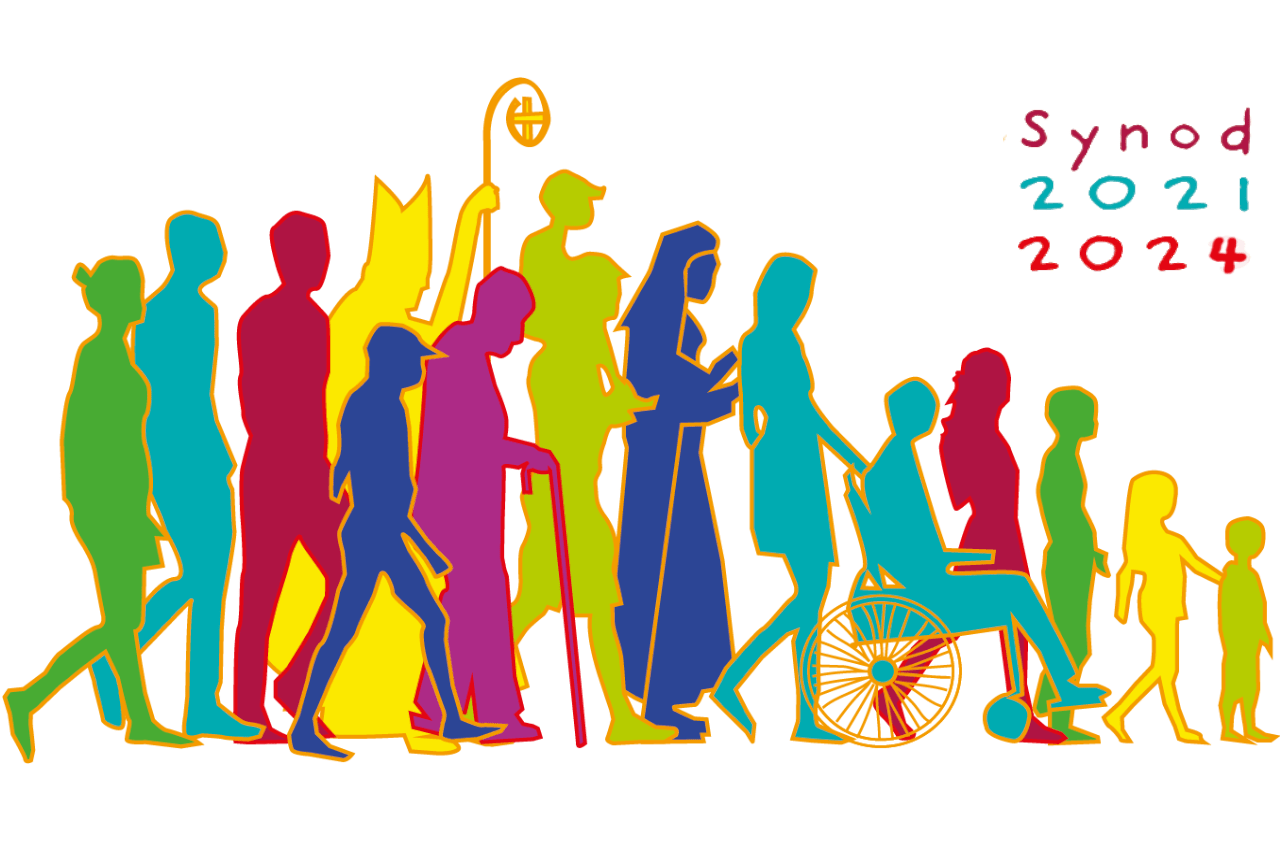
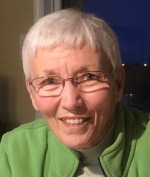
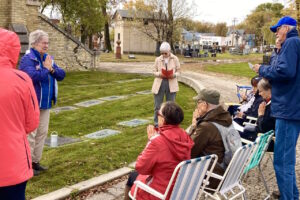
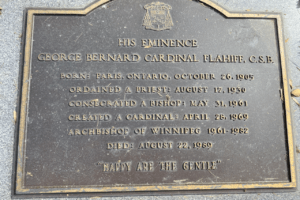
This is a wonderful article, Veronica. You have made the “next steps” easily accessible…just a click and you’re there! In listening to Elizabeth Davis’ presentation I certainly came away with the sense of urgency she was imparting. This article adds to energy of her compelling invitation. Thank you.